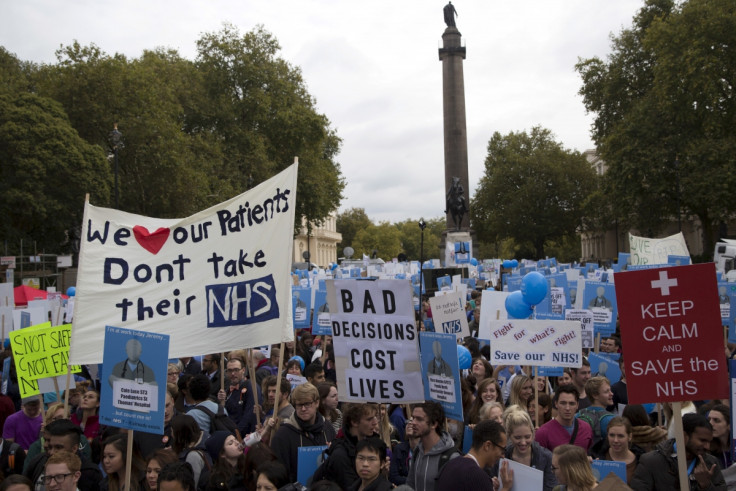Junior doctors' strike: Talks fail as NHS England faces walkouts in January and February

Junior doctors will stage historic strikes over three dates across January and February as part of a contract dispute. The British Medical Association (BMA), which represents around 30,000 of the medics, announced the industrial action after talks broke down between the organisation, NHS England and the government on 4 January.
The move comes after the BMA suspended its strike action in December after NHS England promised not to impose the new controversial contracts on the medics. The Health Secretary Jeremy Hunt had argued, contrary to the BMA's warnings, that the proposed contracts would improve patient safety.
The government had also offered the junior doctors an 11% pay hike in a bid to avert walkouts. But the BMA has now written to trusts across England informing them that the medics will only provide emergency care from 8am (GMT) on 12 January to 8am (GMT) on 13 January (24 hours), and between 8am (GMT) on 26 January to 8am (GMT) on 28 January (48 hours).
The actions will be followed by a full walkout on 10 February when the junior doctors strike between 8am (GMT) and 5pm (GMT). Mark Porter, the council chair of the BMA, said he "sincerely regret[ed]" the disruption that industrial action will cause.
"After weeks of further negotiations, it is clear that the government is still not taking junior doctors' concerns seriously," he added.
"Furthermore, the government has repeatedly dragged its feet throughout this process, initially rejecting our offer of talks and failing to make significant movement during negotiations.
"We sincerely regret the disruption that industrial action will cause, but junior doctors have been left with no option. It is because the government's proposals would be bad for patient care as well as junior doctors in the long term that we are taking this stand."
The Department of Health had not responded to a request for comment from IBTimes UK at the time of publication.
© Copyright IBTimes 2025. All rights reserved.





















